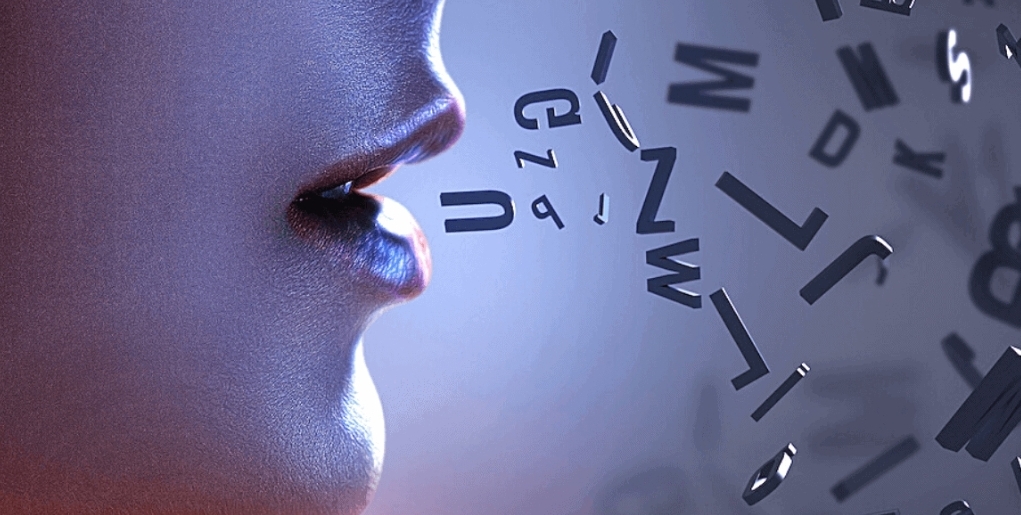This article is on the 5 benefits of hydration. Maintaining good health and well-being relies heavily on staying hydrated. The human body relies on water or hydration for various essential functions, such as digestion, circulation, and regulating temperature, contribute to regulation of blood pressure thereby preventing hypertension. Recognizing the significance of sufficient water intake helps determine individual hydration requirements and encourages a healthy way of life.
Every day, our bodies lose water through various processes such as perspiration, respiration, and urination. Consequently, it becomes imperative to replenish these losses through optimal water consumption. Water aids in digestion by breaking down food and facilitating nutrient absorption, making it fundamental to our digestive system. Additionally, it assists in transporting essential nutrients and oxygen throughout the body via the bloodstream, ensuring that all organs function efficiently.
Moreover, water plays an essential role in regulating body temperature. During physical activities or in excessively warm environments, the body loses water through sweat, which cools the skin and helps to maintain a stable internal temperature. Insufficient hydration can lead to dehydration, which may result in ailments such as headaches, fatigue, and decreased cognitive function.
Hydration is not solely about drinking water; it encompasses the fluids obtained from food sources as well. Fruits and vegetables often contain high water content, contributing to daily hydration needs. Thus, understanding how to measure and maintain adequate hydration levels is vital for sustaining health. Therefore, assessing daily water intake should be a priority for everyone seeking to optimize their health and prevent potential complications arising from inadequate hydration.
Factors Influencing Daily Water Needs
Determining the appropriate amount of water an individual should consume daily is complex and can be influenced by a variety of factors. These factors include age, sex, physical activity levels, climate, and overall health status.
Age is a significant determinant of hydration needs. Infants and children require more water relative to their body weight compared to adults, as their bodies are still developing and have increased metabolic rates. As individuals age, their thirst sensation may decrease, leading to a higher risk of dehydration. Therefore, older adults must be particularly mindful of their water intake.
Sex also plays a crucial role in daily water requirements. Research indicates that men typically require more water than women, primarily due to larger body mass and differing metabolic processes. The Institute of Medicine recommends men consume about 3.7 liters (or 125.1 ounces) daily, while women should aim for approximately 2.7 liters (or 91.2 ounces) per day, which factors in all beverages and food sources.
Physical activity levels significantly impact water needs. Individuals engaging in intense workouts or sports require additional hydration to replace the fluids lost through sweat. It is advised that active individuals consume extra water before, during, and after exercise to maintain optimal hydration and performance. Moreover, one’s environment plays a role; those living in hot or humid climates may find their bodies need more water due to increased perspiration.
Finally, overall health status is vital in determining hydration needs. Illnesses, fever, or conditions like diabetes can increase water loss from the body, suggesting the need for heightened fluid intake. Additionally, women who are pregnant or breastfeeding have increased water requirements. Understanding these diverse factors can help individuals make informed decisions regarding their hydration strategies.
General Guidelines for Daily Water Intake
The question of how much water one should consume daily is often addressed by relying on several established guidelines. A common recommendation, known as the “8×8 rule,” suggests that individuals should aim to drink eight 8-ounce glasses of water each day, which corresponds to approximately 2 liters or half a gallon. This guideline is straightforward and easy for many to remember, but it is essential to understand that hydration needs may vary widely between individuals based on multiple factors.
Health organizations, including the National Academies of Sciences, Engineering, and Medicine, provide more tailored recommendations. They suggest a total daily water intake of about 3.7 liters (or 13 cups) for men and 2.7 liters (or 9 cups) for women, which includes all beverages and food sources. These figures take into account individual variations such as age, weight, activity level, and environmental conditions. For instance, a person who exercises regularly may require more water, while someone living in a humid or hot climate may also need additional hydration.
It’s worth noting that while these guidelines provide a useful starting point, individual circumstances must be taken into account. Factors such as pregnancy, lactation, and specific health conditions can affect one’s water requirements. Some individuals may need to increase their intake significantly during workouts or extended periods in the sun to avoid dehydration. Listening to one’s body—recognizing thirst cues and monitoring urine color—can provide further insight into hydration status beyond standard recommendations.
Ultimately, while general guidelines exist to assist in determining optimal water intake, personalizing hydration strategies is key to ensuring adequate fluid consumption for health and well-being.
Signs of Dehydration
Maintaining adequate hydration is essential for overall health, and recognizing the signs of dehydration can help individuals address their fluid intake before the situation worsens. Dehydration occurs when the body loses more fluids than it takes in, leading to various physical symptoms that can range from mild to severe.
One of the earliest signs of dehydration is thirst. When the body requires more water, the brain triggers a sensation of thirst, prompting the individual to drink more fluids. Alongside thirst, a dry mouth is another common indicator, which may also be accompanied by a decrease in saliva production. Individuals may notice that their tongue feels dry or that they have difficulty swallowing.
As dehydration progresses, fatigue often sets in. The body struggles to perform at optimal levels without sufficient hydration, leading to a general sense of tiredness and lack of energy. Additionally, dizziness may occur, especially when standing up or engaging in physical activity. This happens due to decreased blood volume and circulation, leading to reduced oxygen and nutrient delivery to vital organs.
In cases of more severe dehydration, individuals might experience confusion or difficulty concentrating. This mental impairment occurs because the brain relies on sufficient water levels to function properly. Recognizing these symptoms is crucial, as it can be easy to overlook early signs, particularly in busy lifestyles or during hot weather.
Ultimately, understanding the signs of dehydration empowers individuals to monitor their hydration levels proactively. By being aware of symptoms such as thirst, dry mouth, fatigue, dizziness, and confusion, people can take timely action to restore their body’s hydration balance, thus promoting better health and well-being.
Benefits of Staying Hydrated
Maintaining proper hydration is vital for overall health and well-being. Adequate water intake plays a significant role in enhancing physical performance. During exercise, the body loses water through sweat, which can lead to dehydration if not replenished. Staying hydrated helps to regulate body temperature, lubricate joints, and transport nutrients effectively, allowing individuals to perform at their best, whether during workouts or daily activities.
Cognitive function also benefits remarkably from sufficient water consumption. The brain is composed of approximately 75% water, and even mild dehydration can result in difficulty concentrating, increased fatigue, and mood fluctuations. Drinking an appropriate amount of water helps maintain optimal mental performance, ensuring clarity and focus throughout the day. Furthermore, hydration has been linked to improved memory and cognitive processing, making it essential for academic and professional success.
Proper hydration is also crucial for digestion and nutrient absorption. Water facilitates the breakdown of food, ensuring that essential nutrients are effectively absorbed by the body. Additionally, adequate hydration helps to prevent constipation by keeping the digestive tract lubricated, promoting regular bowel movement, and supporting overall gastrointestinal health. The consumption of water-rich foods can supplement hydration, but drinking sufficient water throughout the day is equally important.
Hydration plays a key role in maintaining healthy skin. Water helps to maintain elasticity and moisture, reducing the appearance of dry skin and wrinkles. Staying adequately hydrated can improve skin complexion and overall appearance, contributing to a vibrant and healthy look. Moreover, some studies suggest that proper hydration may also support weight management, as it can enhance the feeling of fullness, thereby potentially reducing calorie consumption.
In conclusion, the numerous benefits of staying hydrated are undeniable. From enhanced physical performance to improved cognitive function and digestive health, drinking sufficient water is essential for maintaining overall well-being.
How to Monitor Your Water Intake
Monitoring water intake is a vital aspect of maintaining proper hydration. Individuals often find it challenging to ensure they are consuming adequate amounts of water throughout the day. Fortunately, there are various effective methods and tools available that can assist in this endeavor.
One of the most popular ways to keep track of daily water consumption is through the use of smartphone applications. Numerous apps are designed to help users log their water intake easily. These applications typically offer user-friendly interfaces where individuals can record the amount of water they consume, set daily hydration goals, and receive reminders to drink water at regular intervals. Popular examples include MyFitnessPal and WaterMinder, which allow for tracking personalized hydration objectives aligned with lifestyle and activity levels.
Another effective method is to utilize water bottles specifically designed with measurement markers. Many brands produce water bottles that feature clear markings indicating the volume of water contained within. This can serve as an excellent visual cue for individuals aiming to consume a specific amount of water daily. By regularly refilling the bottle and noting the measurements, users can ensure they are progressing towards their hydration goals.
Setting practical daily water intake goals is also a recommended strategy. Whether one aims to drink eight 8-ounce glasses or adheres to more tailored recommendations based on individual needs, having a target can enhance accountability and motivation. Additionally, integrating the practice of mindfulness can improve hydration habits. Taking a moment to reflect on hydration before consuming beverages throughout the day can prompt individuals to maintain conscious awareness of their water intake.
By employing these practical tools and techniques, individuals can effectively monitor their water intake, fostering better hydration habits that contribute to overall health and well-being.
Water vs. Other Beverages
Hydration is essential for maintaining proper bodily functions, and while water is the most direct source for hydration, other beverages can also play a significant role. When comparing water to alternative drinks, it is important to consider their effects on hydration. Tea and coffee, for instance, are often debated regarding their hydration capabilities due to their caffeine content. However, research indicates that moderate consumption of caffeinated beverages does not lead to dehydration; instead, they can contribute to overall fluid intake.
Fruit juices, although rich in vitamins and nutrients, can contain high levels of sugar, which may lead to an imbalance if consumed in excess. Juices do provide hydration, but it is advisable to limit portion sizes to maintain a healthy sugar intake. On the other hand, herbal teas, which are naturally caffeine-free, can be excellent hydrators and may offer additional health benefits ranging from antioxidants to digestive support.
Sodas and other sugary drinks are often categorized as less beneficial for hydration. The high sugar content and potential presence of caffeine can counterbalance any hydrating effects. Soft drinks are not recommended as a primary source of hydration due to their potential to contribute to health issues such as obesity and dental problems. It is important to recognize that not all beverages are created equal when it comes to hydration. Water remains the gold standard for fluid intake, but understanding the hydration potential of alternate beverages can help individuals make more informed choices.
In conclusion, while beverages such as tea and juice can contribute to hydration, water is the most effective and healthiest option. Limiting the intake of sodas and sugary drinks is advisable for maintaining optimal hydration and overall health.
Common Myths About Hydration
When it comes to hydration, numerous myths have emerged that can mislead individuals regarding their water intake requirements. One prevalent misconception is that one can solely rely on thirst to determine hydration needs. While it is true that thirst is a natural indicator of the body’s need for water, it does not always reflect an accurate level of hydration. Various factors such as age, climate, and physical activity can influence thirst cues, meaning that some individuals may not feel thirsty even when they are dehydrated. Therefore, it is crucial to understand that relying solely on thirst may not be sufficient for maintaining optimal hydration levels.
Another common myth asserts that the consumption of excessive amounts of water is inherently beneficial. Although staying well-hydrated is important, consuming far more water than necessary can lead to a condition known as hyponatremia, or water intoxication. This occurs when the balance of electrolytes in the body is disrupted due to diluted sodium levels. Symptoms can range from mild to severe and may include headaches, nausea, and confusion. Thus, it is essential to find a balance rather than adhere to the belief that ‘more is better’ when it comes to water intake.
Many also believe that all fluids contribute equally to hydration. However, while water is the most effective means of hydration, beverages high in caffeine or alcohol can have diuretic effects, leading to increased fluid loss. Therefore, they should not be relied upon as primary sources of hydration. Instead, it is advisable to prioritize water and consider other fluid intake as supplementary. By addressing these myths and understanding the facts, individuals can make informed decisions regarding their hydration needs and overall health.
Conclusion and Personal Hydration Plan
As we have explored throughout this article, the amount of water an individual should drink daily varies based on several factors, including age, weight, climate, physical activity levels, and overall health. While the commonly suggested guideline of eight 8-ounce glasses of water may serve as a baseline, personal hydration needs can differ significantly. Understanding these differences is essential to maintaining optimal health and ensuring that one remains properly hydrated.
Moreover, it is important to recognize that hydration can come from various sources, not just plain water. Foods with high water content, such as fruits and vegetables, and other beverages contribute to daily fluid intake. Therefore, individuals are encouraged to adopt a comprehensive view of hydration that encompasses all liquid sources. Staying attuned to the body’s signals, such as thirst and urine color, can also help in assessing hydration status effectively.
Creating a personalized hydration plan can further enhance one’s health journey. Individuals should consider factors such as their daily routine, temperature and humidity levels in their environment, and individual health conditions when mapping out their hydration goals. For example, those engaged in strenuous physical activities may require more fluid intake to replace lost electrolytes and maintain peak performance. Alternatively, individuals living in warmer climates may need to adjust their water consumption to counteract the effects of heat.
Incorporating hydration into the daily routine can take the form of setting regular reminders to drink water, keeping a water bottle handy, or establishing a habit of hydrating before, during, and after exercise. Ultimately, making water an integral part of your daily life not only supports physical wellbeing but also aids in cognitive function, energy levels, and overall mood stability. By prioritizing hydration, you will create a foundation for a healthier lifestyle.



